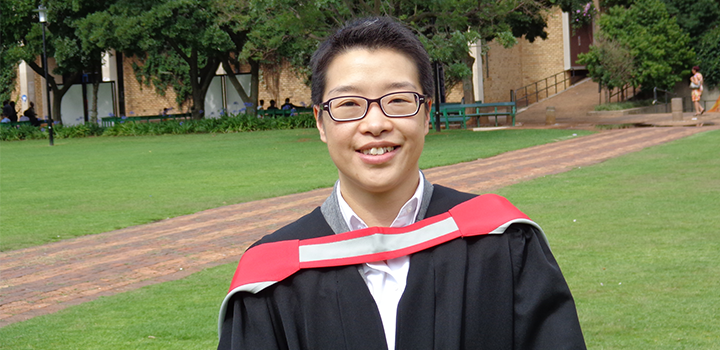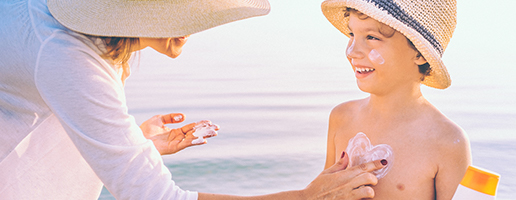12 ways to protect yourself from cancer in 2020

It’s a new year, a new you and another opportunity to start living your best, healthiest life. We spoke to medical oncologist and Discovery Foundation alumna Dr Sze Wai Chan about the positive habits you can start today to protect yourself from cancer.
A new year is always a good time to start creating new positive habits. In South Africa, the first two months on our health calendar happen to focus on an illness that affects many people across the globe: cancer.
The Cancer Association of South Africa declared January SunSmart Cancer Awareness Month, a campaign fitting for one of the hottest months of the year. On 4 and 15 February, we also celebrate World Cancer Day and International Childhood Cancer Day.
If you would like to age with grace, a beautiful skin, as well as lower your risk of developing lung cancer, this is the article for you. We spoke to medical oncologist and Discovery Foundation alumna Dr Sze Wai Chan about the steps you can take to prevent skin and lung cancer.
Changing your lifestyle can prevent skin and lung cancer
In 2009, Dr Chan received a Discovery Foundation Award to pursue her passion of helping people. She sub-specialised in medical oncology at the Wits University Donald Gordon Medical Centre. Today, she works at the Sandton Oncology Centre where she is the Director and Head of Clinical Trial Research, and is determined to raise awareness on melanoma and lung cancer.
“These cancers are largely preventable by a change of lifestyle, for example sun protection for melanoma and stopping smoking for lung cancer,” Dr Chan explains. “Education and awareness can reduce the risk of getting these two cancers.”
“For the past 10 years, the novel treatment of these two cancers revolutionised the way we treat all cancers, mainly from the development of targeted therapy and immunotherapy. Both these cancers are historically deadly but with the recent advances in treatment, long-term control is possible.”
- Read more about Dr Chan’s work in immuno-oncology or immunotherapy.
How to protect your skin from the sun
Make these suggestions from Dr Chan daily habits to protect your skin from the sun:
- Wear protective clothing, such as UV protection swimsuits, shirts or tights.
- Use sunscreen with an SPF of at least 15 for skin that is not covered with clothing and remember to use waterproof sunscreen for swimming.
- Avoid the sun’s intense peak hours between 10:00 and 16:00. If you’re outdoors, rather stay in the shade.
- Get protective tinting or film for your car windows.
- Always wear sunscreen, even when the sun isn’t out. UV rays can reflect off windows, water, sand, concrete or white walls, and even through clouds.
- Do NOT use tanning beds – it’s pure UV rays on your skin.
- Examine your skin every month for suspicious moles, spots or changes and visit a dermatologist once a year.
Another advantage of sun protection? “It helps you age gracefully; you’ll have fewer freckles and you’ll grow old with beautiful skin,” Dr Chan says.
How to lower your risk of getting lung cancer
Lung cancer is one of the most common and dangerous cancers in the world, accounting for 1.76 million deaths worldwide according to the World Health Organization. Here’s how you can avoid it:
- Don’t smoke, and if you do, quit smoking. Quitting reduces your risk of lung cancer, cardiovascular disease and strokes. There are so many ways to make quitting smoking much easier. Join a support group, use nicotine replacement gum or patches, or get medicine to help you quit.
- Don’t vape or stop vaping. You’re inhaling potential toxins with yet unknown effects on your lungs.
- Avoid second-hand smoke as much as possible. You can always remind smokers not to smoke near you if you feel comfortable to do so. Avoid poorly ventilated places where people smoke like clubs and bars.
- Exercise and eat a healthy diet containing lots of fruit and vegetables.
- Wear a protective mask if you work in a mine with asbestos or with hazardous fumes and chemicals.
Ask your oncologist about clinical trials
What can you do if you do get a dreaded cancer diagnosis? “For both lung and skin cancer – and possibly for all cancers – one important treatment option to ask your doctor about is clinical trials,” Dr Chan advises.
She adds that there are many advantages to clinical trials, including accessing newer medicine in early development before it’s been registered and while more testing can be done on the cancer. This helps doctors to understand the biology of the cancer and to select better treatment later. “There are clinical trial opportunities across all provinces in South Africa, in both government and private clinics and hospitals. The trial treatments are often free of charge.”
About the Discovery Foundation
Each year, the Discovery Foundation gives five different awards to outstanding individual and institutional awardees in the public healthcare sector.
The Discovery Foundation is an independent trust with a clear focus to strengthen the healthcare system by ensuring that more people have access to specialised healthcare services.
Since 2006, the Discovery Foundation has invested more than R230 million in training and support for more than 400 medical specialists and institutions. The grants support academic research and clinical science, sub-specialist training, rural medicine as well as programmes to develop public healthcare resources. For 2019, Discovery Foundation awarded 42 grants to medical specialists working in South Africa’s healthcare sector to the value of R27 million.
Learn more and apply for the 2020 Discovery Foundation Awards.
Related articles

How sunlight causes skin cancer
According to the Australian Cancer Council almost all skin cancers - approximately 99% of non-melanoma skin cancers and 95% of melanomas - are caused by too much UV radiation from the sun, sun beds and sun lamps.

Spot it! Get to know your skin
By regularly checking for changes in freckles and moles you can spot any signs of skin cancer early. The sooner skin cancer is detected the greater your chances of successful treatment. Do a monthly skin self-exam.

Long live the lung: Meet one of SA's leading lung doctors
Twelve years ago, Richard van Zyl-Smit was named one of the very first recipients of a Discovery Foundation Academic Fellowship Award. We caught up with him for tips on how to keep your two oxygen-processors in tip-top shape.